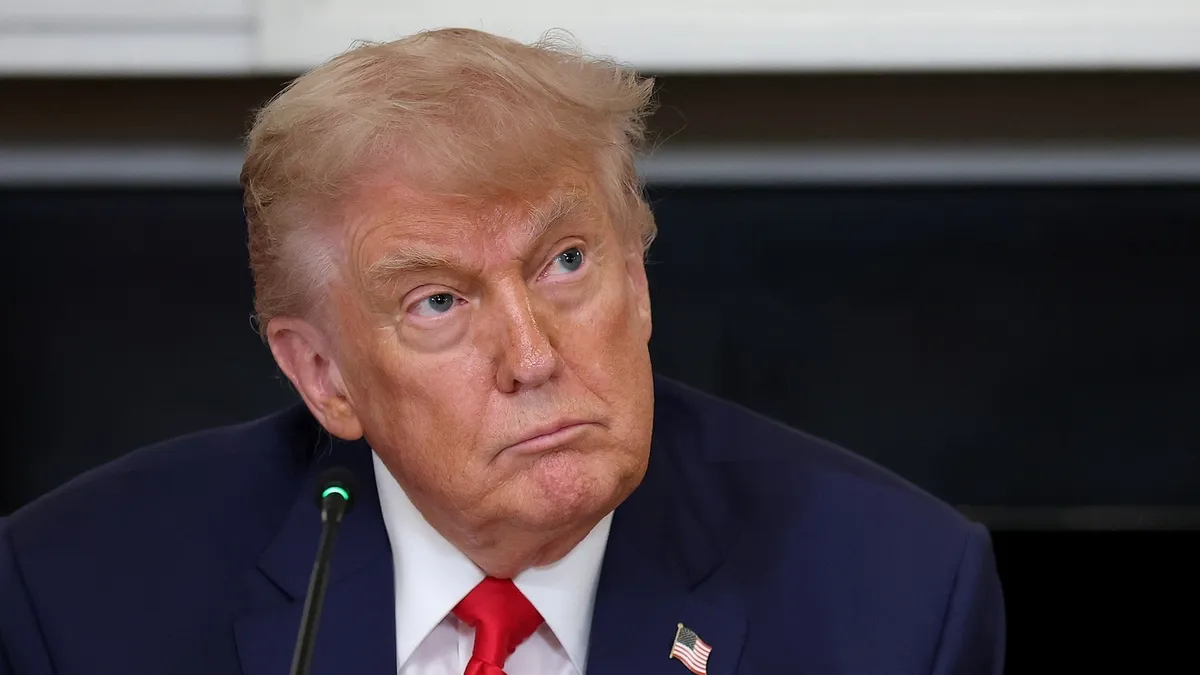
Just over a year after Donald Trump made history as the first former president to be convicted of a felony, an appeals court is preparing to examine his request to transfer his criminal case to federal court. The U.S. Court of Appeals for the 2nd Circuit has slated oral arguments for Wednesday to deliberate whether Trump's hush money case should be moved from state to federal jurisdiction.
Last year, Trump was found guilty on 34 felony counts after Manhattan prosecutors accused him of orchestrating a scheme to enhance his chances during the 2016 presidential election. This scheme allegedly involved making a series of hush money payments to adult film actress Stormy Daniels and subsequently falsifying New York business records to conceal these alleged illegal activities.
Trump's legal team contends that the actions central to his criminal trial involved official duties he undertook while serving as president. They assert that this grants him broad immunity, allowing for the case to be transferred to federal court. Trump's lawyers reference a pivotal Supreme Court ruling from last year, which they argue would have precluded prosecutors from securing a conviction had it been issued prior to his sentencing.
The Supreme Court's landmark decision, which came after Trump's conviction in May, defined the parameters of presidential immunity. This ruling included a broad evidentiary immunity that prohibits prosecutors from probing a president’s official actions, a point that Trump’s removal notice claims was violated. In an amicus brief submitted to the court, Department of Justice lawyers argued that the timing of the Supreme Court's decision supports the case for post-trial removal.
Trump has consistently labeled the prosecution as politically motivated. He successfully postponed his sentencing several times before being sentenced by New York Judge Juan Merchan on the eve of his inauguration. The judge imposed an unconditional discharge, the lightest penalty permitted under New York state law, stating it was necessary to avoid interfering with the highest office in the country.
Manhattan District Attorney Alvin Bragg, who initiated the case, emphasized the importance of the jury's decision. He responded to Trump's claims by asserting that the case should not be moved to federal court post-sentencing. Prosecutors argue that Congress intended for criminal case removals to occur before sentencing, anticipating that essential federal proceedings would precede a final criminal judgment.
Trump's appeal is set to be reviewed by a panel of three federal judges, each appointed by Democratic presidents. Notably, Trump's former defense attorneys now hold prominent positions within the Department of Justice. Consequently, he will be represented by former Acting Solicitor General Jeffrey Wall from the prestigious law firm Sullivan & Cromwell.
In a rare move, lawyers from the Department of Justice submitted an amicus brief supporting Trump's request, asserting that the United States has a significant interest in the issues raised in this appeal. If the appeals court approves Trump's petition, his conviction would remain intact, but his appeal process would transition to a federal courtroom.
Regardless of the outcome, Trump retains the option to petition the U.S. Supreme Court for further intervention. Moving the case to federal court could also introduce the possibility that Trump may attempt to pardon himself in the future.